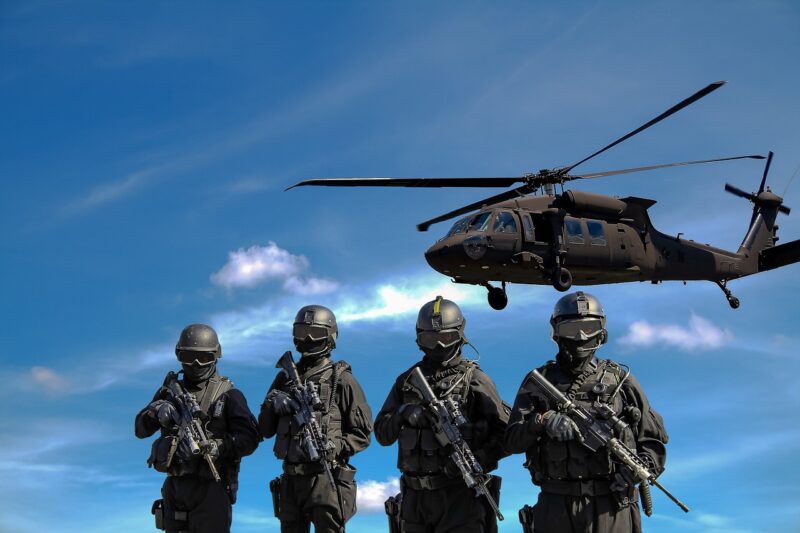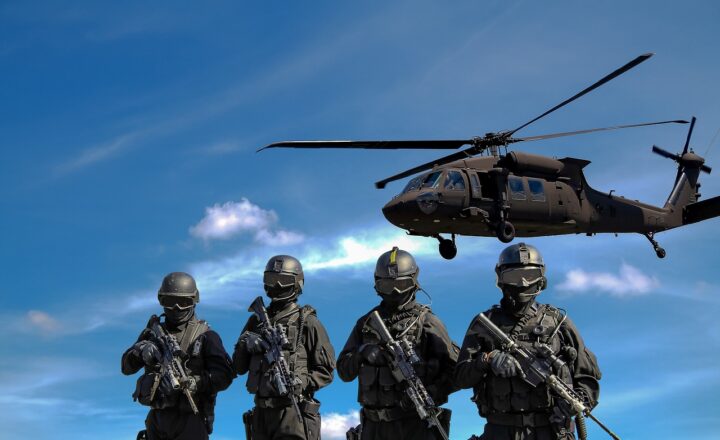Why Some Countries Use Military in Law Enforcement Roles: Pros and Cons
November 14, 2024

In the realm of governance and public safety, the role of the military has evolved significantly in various countries. While the primary purpose of the military is to defend the nation against external threats, many nations have increasingly turned to military forces to assist in law enforcement roles, especially in times of crisis or when civil unrest beckons. Understanding the implications of this shift requires a nuanced exploration of its advantages and disadvantages.
1. Historical Context of Military Involvement in Civil Affairs
Military involvement in law enforcement is not a modern phenomenon. Historically, during times of war or national emergencies, governments have deployed military forces to maintain order and stability. Countries such as the United States and Mexico, for instance, have utilized military personnel to address drug-related violence and gang activities.
Moreover, nations struggling with internal conflict or high crime rates may place military personnel alongside police forces to bolster law and order. This history sets the stage for debate on whether military involvement helps or hinders democratic values.
2. The Pros of Military Involvement in Law Enforcement
While the deployment of the military in law enforcement roles is controversial, several advantages are often cited:
- 1. Enhanced Security: In countries experiencing high levels of violence or terrorism, military personnel can provide a level of security that the police force may be ill-equipped to offer. Their training and resources can help quell unrest swiftly and decisively.
- 2. Resources and Training: Military forces are typically better equipped with advanced technologies, weaponry, and training protocols. In emergencies such as natural disasters or terrorist attacks, military involvement can facilitate a rapid response compared to conventional law enforcement agencies who may be underfunded or under-trained.
- 3. Overcoming Police Limitations: In cases where police departments face corruption, inefficiency, or lack of manpower, the military can provide a robust alternative, addressing serious crime or violence more effectively.
- 4. Regional Stability: In regions plagued by civil strife, the military can help restore stability and order, which is essential for rebuilding trust in governance and maintaining peace among communities.
These factors often lead nations to consider military intervention as a practical solution to pressing law enforcement challenges.
3. The Cons of Military Involvement in Law Enforcement
Despite the perceived benefits, military involvement in civil law enforcement raises several concerns:
- 1. Erosion of Civil Liberties: The military is trained for combat, not community engagement. Their involvement in law enforcement can lead to heavy-handed tactics, undermining citizen rights and freedoms, and potentially exacerbating conflicts between the state and the populace.
- 2. Lack of Accountability: Military personnel may not be subjected to the same levels of oversight and accountability as police officers. This can enable abuses of power and decrease trust in law enforcement institutions among the public.
- 3. Militarization of Society: When military forces are regularly employed for policing, it can lead to a normalization of military presence in civilian life, creating a culture of fear and intimidation rather than safety and security.
- 4. Potential for Escalation: The use of military force in law enforcement situations can escalate conflicts rather than resolve them, further endangering public safety and maintaining civil peace.
These drawbacks highlight the delicate balance nations must navigate when considering military interventions in civil matters.
4. Case Studies: Countries Utilizing Military in Law Enforcement
Examining real-world examples can provide insight into the complexities of military involvement in policing:
- United States: The deployment of the National Guard during civil protests and riots, particularly those following police violence, raises questions about the appropriateness of military intervention in what should primarily be a civil matter.
- Mexico: Faced with drug-related violence, Mexico has increasingly employed its military to combat drug cartels, often citing police ineffectiveness. However, this has resulted in human rights abuses and a volatile security environment.
- Philippines: Under President Rodrigo Duterte, military forces have been involved in anti-drug campaigns. This controversial strategy has drawn international condemnation for alleged extrajudicial killings and violations of human rights.
- Brazil: In response to crime waves, Brazil has engaged its military to patrol favelas, but the approach has often led to violent confrontations, raising concerns about the effectiveness and ethics of the military in local law enforcement.
Examining these nations reveals that while military involvement can address immediate crises, it often creates more extensive societal issues that must be carefully managed.
5. Striking a Balance: Recommendations for Future Practices
To reconcile the necessity of government security with the protection of civil liberties, the following measures could be established:
- 1. Training and Oversight: If military forces are to be involved in law enforcement, comprehensive training in civil rights and de-escalation techniques should be mandated. Additionally, there should be transparent oversight mechanisms to hold military personnel accountable for their actions.
- 2. Promoting Community Policing: Empowering local law enforcement agencies to build trust within their communities can reduce the need for military intervention and promote healthier police-community relations.
- 3. Addressing Root Causes of Conflict: Governments should focus on addressing socioeconomic issues, such as poverty and lack of access to education, that drive crime and civil unrest rather than solely relying on military forces to maintain order.
- 4. Legal Frameworks: Establishing clear legal frameworks for military engagement in law enforcement can help demarcate when and how such actions are permissible, providing a blue print that prioritizes democratic values.
Through these recommendations, countries can better navigate the pros and cons of military involvement in law enforcement while upholding civil liberties.
Conclusion
As countries grapple with rising crime rates and civil unrest, the role of the military in law enforcement will continue to be of paramount importance. While the approach may offer immediate security benefits, the long-term implications could challenge the foundations of civil society and governance. Ultimately, careful consideration of the military’s role, along with robust measures to protect civil rights, will ensure a balanced approach that prioritizes both public safety and democratic values.
Whether military involvement in law enforcement should be an ongoing strategy or a temporary measure during crises remains a subject of ongoing debate, reinforcing the need for constant evaluation of such practices in a rapidly changing global landscape.







